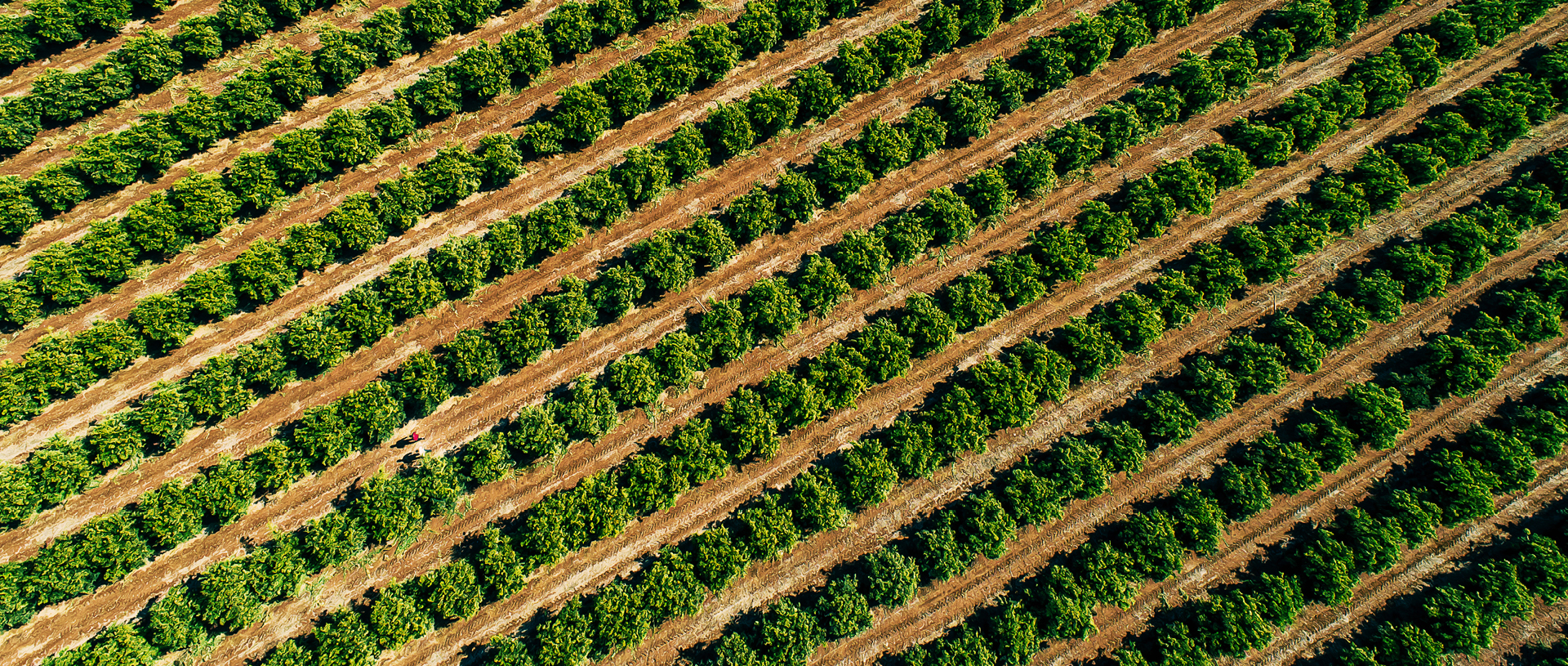
Among the hundreds of lectures Paul Gendron (DMin ’10, MDiv ’99) attended during his time in seminary, one in particular stayed with him. It was given by the late Fuller professor Ray Anderson in a Foundations of Ministry course. Never one to turn down an agrarian anecdote, Dr. Anderson took the occasion to speak about growing up on a rural farm in South Dakota. In that hour-long slice of time, Paul listened to words he would still be able to paraphrase a quarter of a century later.
Anderson talked about learning how to drive a tractor. His father had taught him to always keep one hand on the wheel to steer and the other on the till to hoe the row behind him. “I was always looking forward with my steering hand,” Anderson said, “but my hand on the till was constantly soiled by all the dirt that got kicked up behind it.” He then looked students in the eye and concluded, “I hope that during your time at Fuller you recognize how we’re attempting to do both. We’re always trying to look ahead to what’s next in order to adapt to ministry, but we’re also always in the trenches, learning by doing.”
When Paul graduated from Fuller several years later, he followed the archetypal post-seminary path: landing a job as a pastor, devoting himself to his congregation, and eventually getting asked by the presbytery to start a church plant of his own. Instead of honor, however, Paul felt restlessness—like he was supposed to be doing something nobody else was doing, like he was supposed to go beyond the four walls of then-declining mainline churches and hoe a completely different row.
While he prayed about what this pivot away from traditional ministry might look like, Paul awoke one night with a vivid recollection of a magazine article—one about a successful entrepreneur who abandoned the corporate world to enroll in seminary, only to have former business contacts come to him in droves with their personal and professional woes. Somewhat inadvertently, he became a chaplain for people in the workplace.
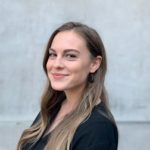
Claire Mainprize (MAT ’20) is a freelance writer and editor based in Colorado’s Front Range.
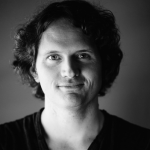
Nate Harrison is a video storyteller for FULLER Studio and Senior Photographer for FULLER Magazine. His award-winning photography and filmmaking include showcased work for indiewire, The New York Times, UCDA Design Competition, and include clients such as Time Warner, Sundance Institute, and Nettwerk Music Group. His personal work can be found at NateCHarrison.com.
Among the hundreds of lectures Paul Gendron (DMin ’10, MDiv ’99) attended during his time in seminary, one in particular stayed with him. It was given by the late Fuller professor Ray Anderson in a Foundations of Ministry course. Never one to turn down an agrarian anecdote, Dr. Anderson took the occasion to speak about growing up on a rural farm in South Dakota. In that hour-long slice of time, Paul listened to words he would still be able to paraphrase a quarter of a century later.
Anderson talked about learning how to drive a tractor. His father had taught him to always keep one hand on the wheel to steer and the other on the till to hoe the row behind him. “I was always looking forward with my steering hand,” Anderson said, “but my hand on the till was constantly soiled by all the dirt that got kicked up behind it.” He then looked students in the eye and concluded, “I hope that during your time at Fuller you recognize how we’re attempting to do both. We’re always trying to look ahead to what’s next in order to adapt to ministry, but we’re also always in the trenches, learning by doing.”
When Paul graduated from Fuller several years later, he followed the archetypal post-seminary path: landing a job as a pastor, devoting himself to his congregation, and eventually getting asked by the presbytery to start a church plant of his own. Instead of honor, however, Paul felt restlessness—like he was supposed to be doing something nobody else was doing, like he was supposed to go beyond the four walls of then-declining mainline churches and hoe a completely different row.
While he prayed about what this pivot away from traditional ministry might look like, Paul awoke one night with a vivid recollection of a magazine article—one about a successful entrepreneur who abandoned the corporate world to enroll in seminary, only to have former business contacts come to him in droves with their personal and professional woes. Somewhat inadvertently, he became a chaplain for people in the workplace.
Claire Mainprize (MAT ’20) is a freelance writer and editor based in Colorado’s Front Range.
Nate Harrison is a video storyteller for FULLER Studio and Senior Photographer for FULLER Magazine. His award-winning photography and filmmaking include showcased work for indiewire, The New York Times, UCDA Design Competition, and include clients such as Time Warner, Sundance Institute, and Nettwerk Music Group. His personal work can be found at NateCHarrison.com.
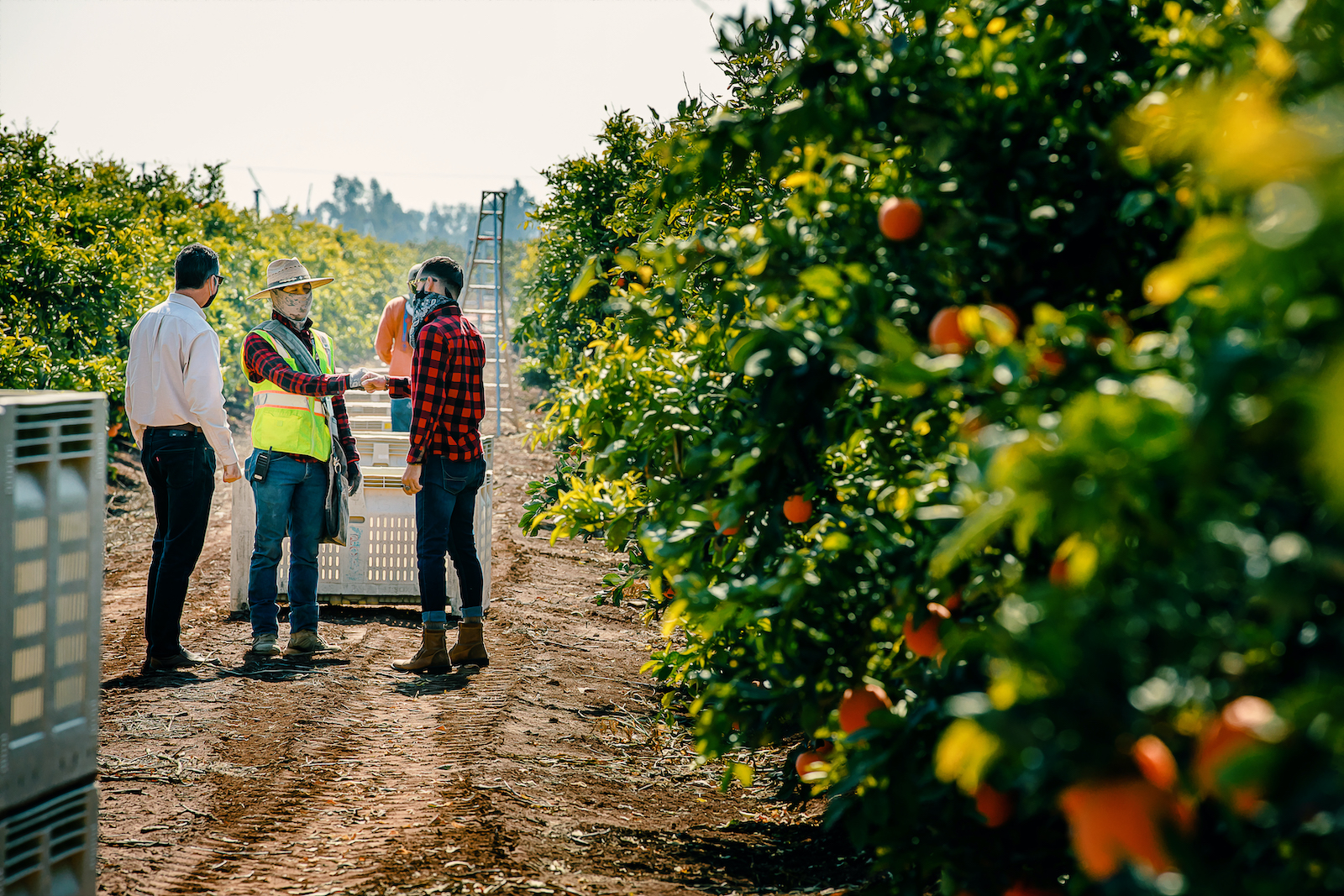

The next morning, Paul retrieved those torn magazine pages from the cabinet where he housed all of his “interesting, tickler ideas” and feasted on the words. “I would love to do that,” he thought, “and it would be such a neat way to extend Christ’s love and care to people.” Because he wasn’t raised in the church, he actually had more experience in the workplace than within church walls. Paul says, “I’ve always recognized the need to have people of deep faith and commitment caring for people where they spend half their waking lives: at work.”
Spurred on by Anderson’s metaphor of the till, Paul turned down the presbytery’s offer to plant a church and instead started his own nonprofit to bring chaplaincy services into this setting. He aptly named the company Workforce Chaplaincy and inaugurated this new vocation with only two clients: a lawyer and a tree grower—both congregants from his church.
Now, 15 years since its genesis, Workforce Chaplaincy provides year-round services for 13 companies and has fulfilled contracts with 75 others. Their primary goal is to act as an early intervention system. More specifically, to help owners, directors, managers, and employees deal with the various issues that arise within a fast-paced and competitive work culture. Because many employees can’t afford the steep rates of licensed marriage and family therapists or psychologists, corporate chaplains are able to step in to address personal problems before they develop into something more serious—not to mention costly for a business. They are also able to offer the kind of grief counseling that many providers, through employee assistance programs (EAPs), are often unable to, especially in the event of wider tragedies that may happen in workplaces.
Most recently, Workforce Chaplaincy expanded this work in a big way: they now provide chaplaincy services to migrant farmworkers under various employers in the agro-industrial complex. The team cares for between 6,000 and 7,000 workers each year, with both a Mexican-facing side of the company as well as a presence in five US states. Although this development continually tests Paul’s capacity to learn by doing, his mission has remained unchanged: “People need to know that they are important,” he says.
Guided by this principle, he and his fellow chaplains stick to their discipline of making rounds in the workplace—wherever that may be. “I would say 90 to 95 percent of our work is born out of just being there,” Paul says, noting that in his opinion, the ministry of presence is the core facet of chaplaincy. “It’s how we create the setting for building trusting relationships.”
Needless to say, “making rounds” in orchards, farms, and factories looks a bit different than it does in Workforce Chaplaincy’s other sites. And in this respect, Anderson’s metaphor proved more literal than Paul ever could have anticipated. In walking alongside and caring for those who sink their hands into the soil day in and day out, Paul himself walks deeper into the figurative furrows of ministry.
Fortunately, all of the employers Paul currently works with in this industry welcome his services with open arms. They also do everything in their power to meet the necessary guidelines for hosting seasonal workers, including sponsoring H-2A visas, providing adequate housing, and serving at least half of all meals. Although they answer calls day and night, the chaplains spend the most time with the workers when their 10- to 12-hour shifts finally come to a close. They laugh, cry, and break bread together. As one of Paul’s colleagues, Juan Gutierrez, says, “Whatever it takes for them to know they’re important and God cares for them is what I’ll do.”
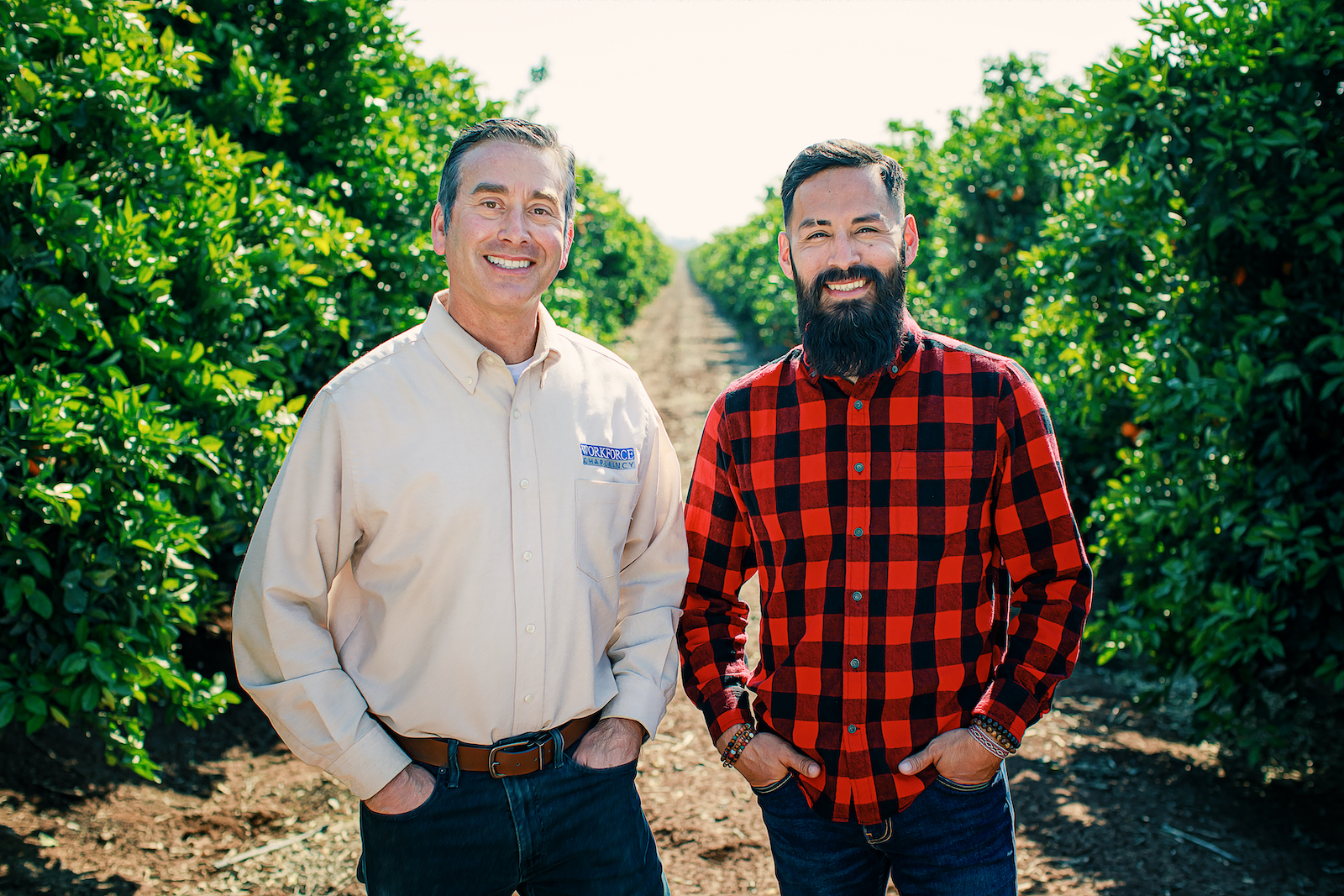

As his Spanish skills are admittedly lacking, Paul does a bit more steering these days, leaving much of the “doing” to the bilingual chaplains on staff, including Juan. As founder and CEO of the company, Paul asks the big questions, namely, how they can best meet the varying and unique needs of this population—one he believes is far too often neglected.
Reminding the workers of the initial dream that brought them here is among the most pressing needs. Due to the grueling labor, physical separation from loved ones, and stark cultural differences, the work can very quickly take an emotional, physical, and spiritual toll. “They’re just trying to get out from underneath poverty in their home country, and the cost is that they may not be there for their child’s birth,” Paul says, noting how surprisingly common this occurrence is.
Last year, one of the workers’ sons battled leukemia and the illness took a turn for the worse mid-season. Because the only company-sanctioned reason to return home is for the death of a family member, the man feared he would lose his son without getting the chance to say goodbye. However, many employers grant Paul and his colleagues discretion in these matters. “We were able to advocate for him so he could go home and be with his child,” Paul says.
An entirely different set of needs arose when the COVID-19 pandemic hit the Central Valley. Early on, the Growers and Shippers Organization of California contracted with multiple hotels to provide a place for affected workers to quarantine. The process was fraught with anxiety. “Think about it,” Paul says. “You’re in a foreign country, you speak no English, and you’re in a hotel room that you can’t leave, even though your symptoms may be very minor. You start to freak out.”
Due to the lack of communication about these unforeseen circumstances, some employees jumped ship and tried to cross back over the border. Workforce Chaplaincy quickly adapted to the emerging situation by offering psychological reassurance, promising workers that their meals would be delivered, their paychecks would be cashed, and Spanish-speaking chaplains would answer the phone whenever they called.
Now and in pre-pandemic times, the chaplains also dream with the workers about their futures back home. It humbles Paul, however, to recognize that these are all dreams delayed, not imminent—all for the purpose of creating a better future for their family. That’s why he does everything in his power to ensure those dreams materialize.
Exemplifying these efforts, Workforce Chaplaincy hosts webinars on topics such as “How to Manage Your Emotions While You’re Away from Family” and “How to Face Loneliness.” As both a gesture and a tangible reminder that their loved ones are indeed being taken care of, the thousands of families back home are invited to join in too.
The company also offers courses on values, ethics, business entrepreneurship, and finances. The emphasis on the latter two topics is due to the fact that in just one season in the US, these workers can earn the equivalent of what they would make in 10 seasons working in Mexico or Guatemala. “As chaplains, we want to help them create a vision and plan for their family—to create a legacy,” Paul says.
And they have done just that. One man returned home and bought three cows. Another bought a taco stand. Others purchase their own land to farm or properties to manage. “It is life-changing, the work that they do here,” Paul says.
He holds fast to the hope that their lives will be changed in a spiritual sense as well. “As chaplains—whether it’s cross-culturally to these workers from Oaxaca and Veracruz and Tamaulipas, or to those closer to home—we’re sometimes their very first experience with a spiritual caregiver,” Paul says. “Some of them have never had a pastor because they’ve never darkened the doors of a church. And what a privilege it is that Fuller trains people like myself—and by extension, our chaplains—so that we can go out into the world and bring the love of Christ outside the four walls of the church.”
Perhaps that’s why Paul has always preferred the title “chaplain” to “reverend,” “doctor,” or even plain “pastor.” With one hand on the wheel and the other on the till, he takes his ministry beyond church walls and down into the gritty, upturned, life-giving dirt.
Casey Church reimagines faith expressions and the church experience in a distinctively Native American context